Inside the Taliban slaughterhouses where Western ‘collaborators’ are tortured to death
After Zoya’s brother was snatched from the streets of Kabul, her family were told nothing – until his mutilated body was returned. He is one of an increasing number of Afghans facing brutal reprisals for their connections to the previous government, writes Arpan Rai

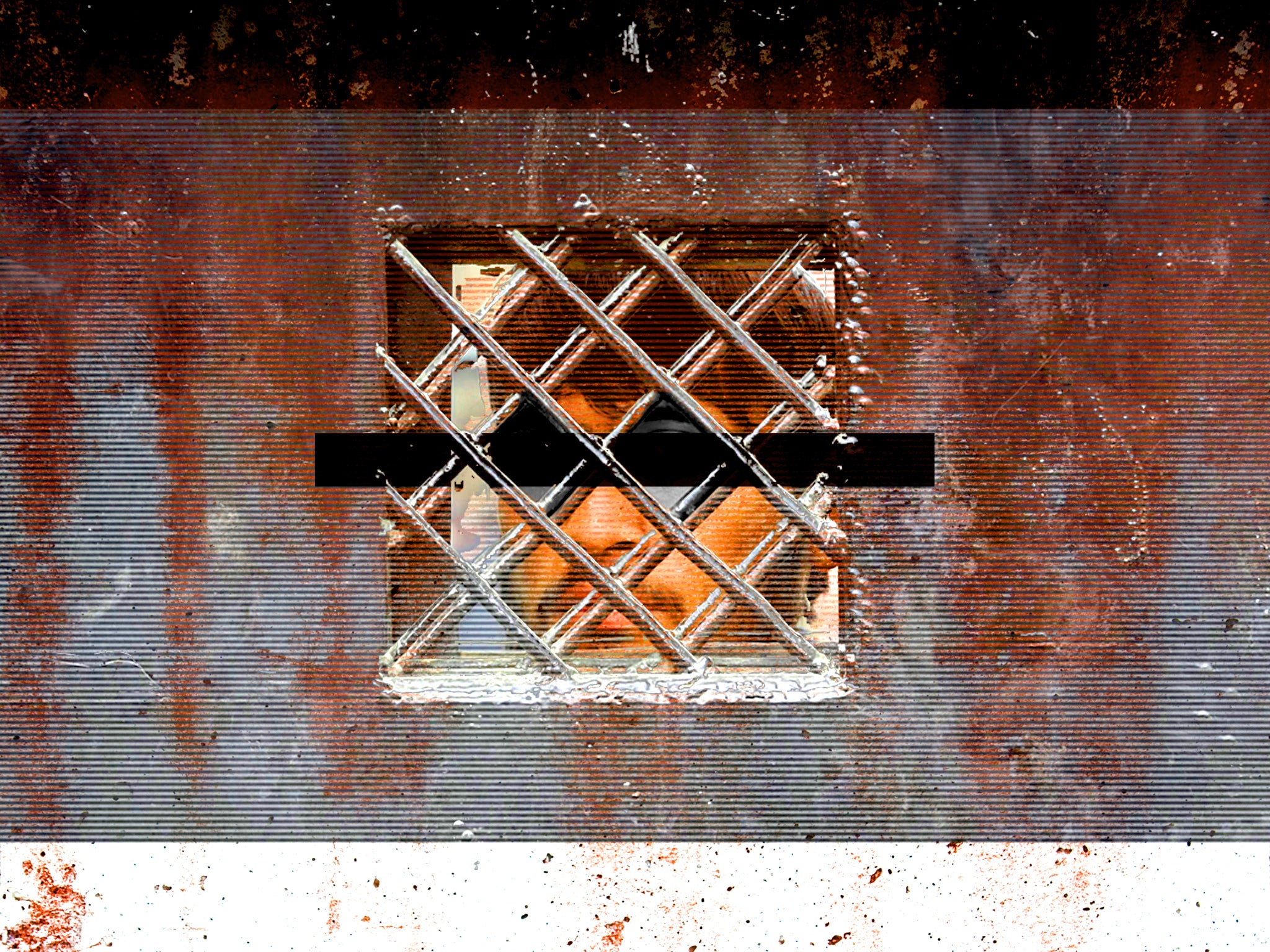
Farhan* had been hiding from the Taliban for more than a year when he decided it might be safe enough to return home to Kabul.
A Special Forces soldier with the former Western-backed government, he took refuge in Pakistan as soon as the Taliban retook control of Kabul in August 2021, fearing that brutal and deadly revenge would be taken against those associated with the administration that had been violently supplanted.
“He was scared for his life,” says Farhan’s 22-year-old sister, Zoya*. “One day he stepped out for a minor chore and never came back.”
Farhan would return at the end of the summer in 2022. Yet just 20 days later, his family received word from a neighbour that their worst fears had come true: he had been captured by the Taliban.
The family is among half a dozen who have spoken to The Independent about cases that, according to local activists, journalists and rights groups, show an alarming trend: far from keeping its promise not to seek retribution against those associated with the previous government, the Taliban has merely been biding its time before enacting vicious extrajudicial “justice” against its perceived enemies.
Farhan’s family had no idea what had happened to him for more than a week after his detention. His mother and Zoya were not even allowed to enter the local Taliban office to make enquiries, due to the restrictions on women’s activities under the current regime. When Farhan’s father and brother went to enquire, they were aggressively sent away. They had no idea where their 25-year-old son was.
Ten days after he went missing, the first clue came. A Taliban fighter called the family to inform them that Farhan was extremely sick and they must rush at once to see him at the hospital.
A wave of relief washed over the family, and they all went straight to the hospital in Kabul. But when they arrived and gave Farhan’s name, they were not led to the general ward as expected; they were taken to the morgue.
Zoya’s voice cracks as she recalls the moment their worst fears were confirmed. Farhan was not just dead, he was unrecognisable. “Initially, we couldn’t believe it was my brother’s body... but [even] more so because it was maimed to the extent where we could not identify it,” she says.
His body had turned dark blue and black from bruising, and the skin on his left cheek was torn apart. His left eye had disappeared under heavy swelling, and his mouth was full of wounds and blisters. Then there were Farhan’s limbs. His nails were pulled away from his skin on his left hand, and three toes were missing from his left foot. His entire body was punctured and laced with wounds and markings.
“We had to carefully look at the mutilated body to confirm it was my brother,” says Zoya, as she recalls the pain of that moment.
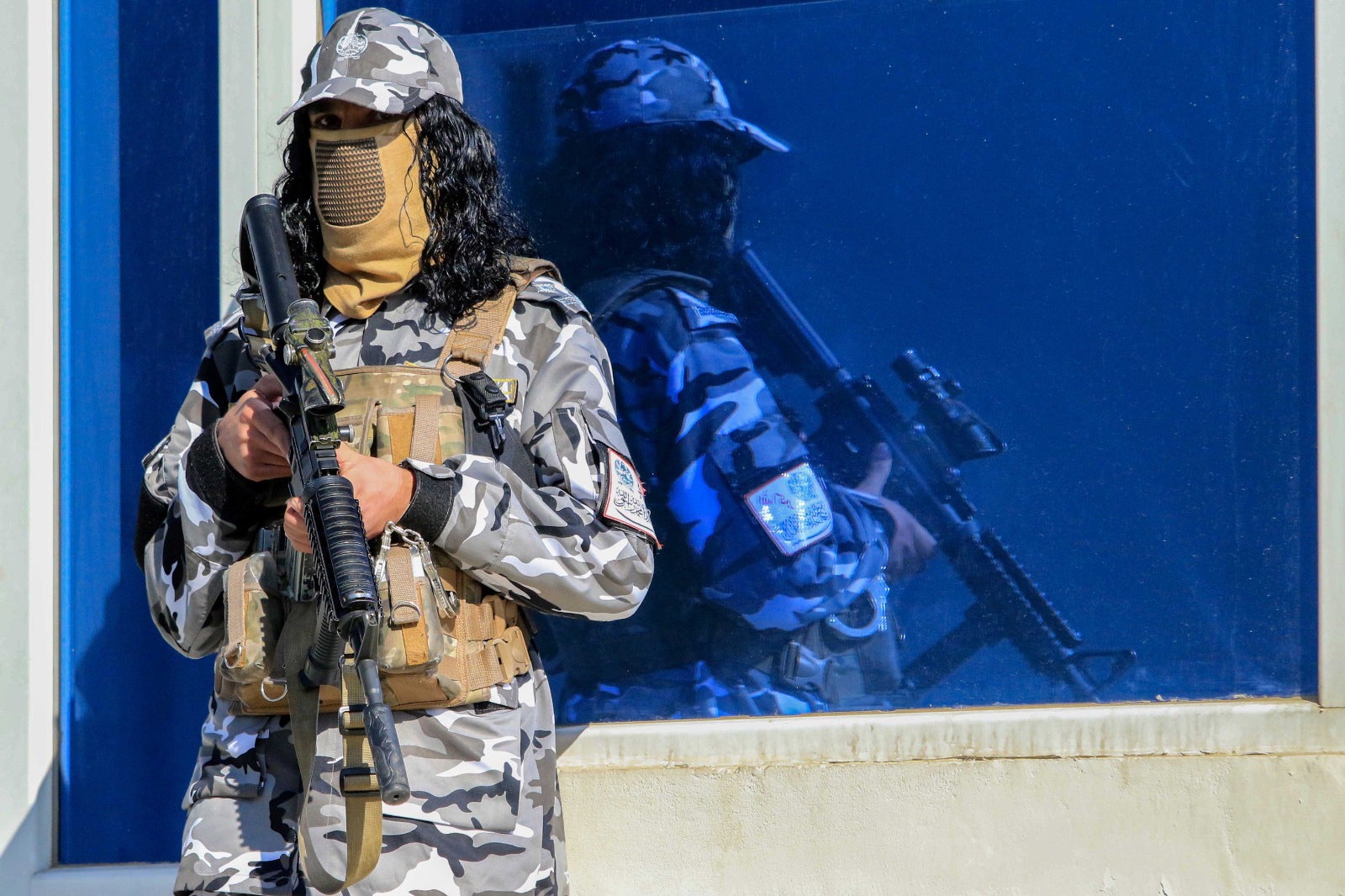
The family asked Taliban officials present at the hospital what had happened to Farhan. The only muttered answer they received, repeatedly, was: “He did not die in prison under the Taliban’s watch.” On being asked where Farhan had been taken and the reason for his detention, the Taliban fighters simply turned away.
As well as having to deal with their grief, Farhan’s family continue to live in fear of being dragged into custody themselves and killed because of Farhan’s connection to the former administration. Once a source of great pride, Farhan’s position serving in the Afghan Special Forces had become a curse: something they could never speak of again.
Last Sunday, the Taliban announced it had conducted the mass burial of more than a hundred corpses, claiming that all of those who had died were “drug addicts”. No further details were provided about their identity, how they had come to be in the custody of the Taliban, or their cause of death. It has only served to fuel concern that this was a poorly concealed cover-up of extrajudicial killings.
Zakarya Hassani, a France-based correspondent from Afghanistan who continues to cover events in his homeland, says it is possible that there were some drug addicts among the bodies, but it also comes amid an unmistakeable rise in reports of killings of former members of the army and government.
“I think there are also the bodies of those who have been recently killed or assassinated, whether by the Taliban or by other groups,” he tells The Independent.
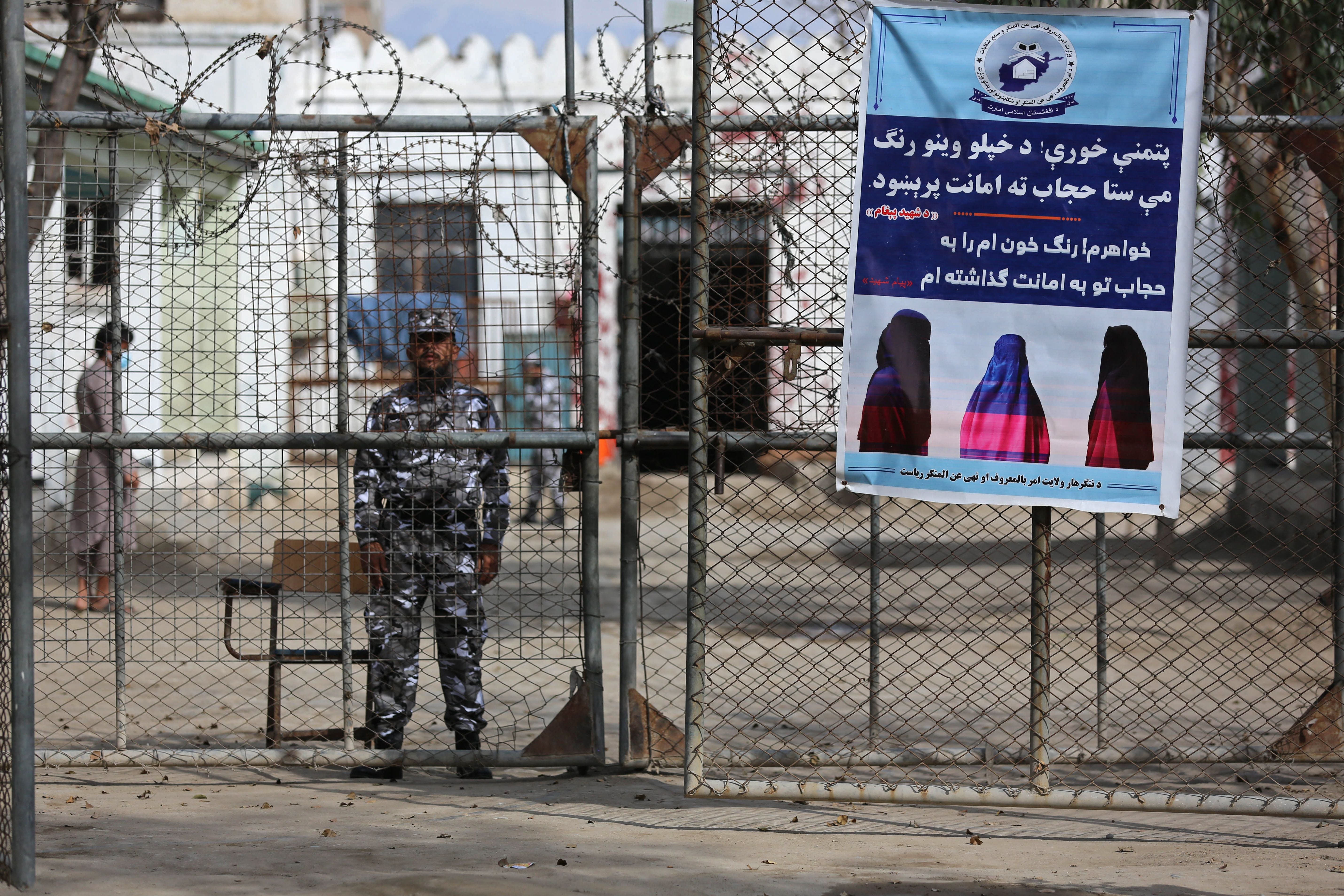
He notes that it is very unusual for bodies to be disposed of with “unknown” identities, except for in the case of large explosions.
Natiq Malikzada is an Afghan journalist and human rights activist working from Dubai who has also been monitoring the deteriorating situation, and says that, in the absence of human rights protections, the Taliban has turned Afghanistan’s prisons into slaughterhouses.
“Most of the prisoners – including former security forces from the previous government, and civilians from areas where active resistance against the Taliban is taking place, such as Panjshir province and Andarab – are in horrible condition. Thousands of people from those areas, particularly Panjshir, have been illegally imprisoned without trial,” he tells The Independent.
Anyone suspected of opposing the Taliban or being linked to the previous administration risks being arbitrarily arrested and subjected to brutal torture, often resulting in death, claims Malikzada.
The Taliban has faced such allegations before: last year the UN presented 160 documented cases of extrajudicial killing, 56 incidents of torture, and more than 170 of arbitrary arrest since the August 2021 takeover. The Taliban has repeatedly denied allegations of human rights abuses; a spokesperson responded to the UN report by saying that “no kind of arbitrary killings and arrests are allowed in the country”.
Malikzada says that the frequency of these allegations has shot up drastically in the last few weeks, however, with more than 10 high-profile cases reported in the first week or so of February alone. He argues that the Taliban is deliberately ramping up this tactic after testing the reaction of the international community to other rights violations, with public executions and floggings going ahead without any serious intervention.
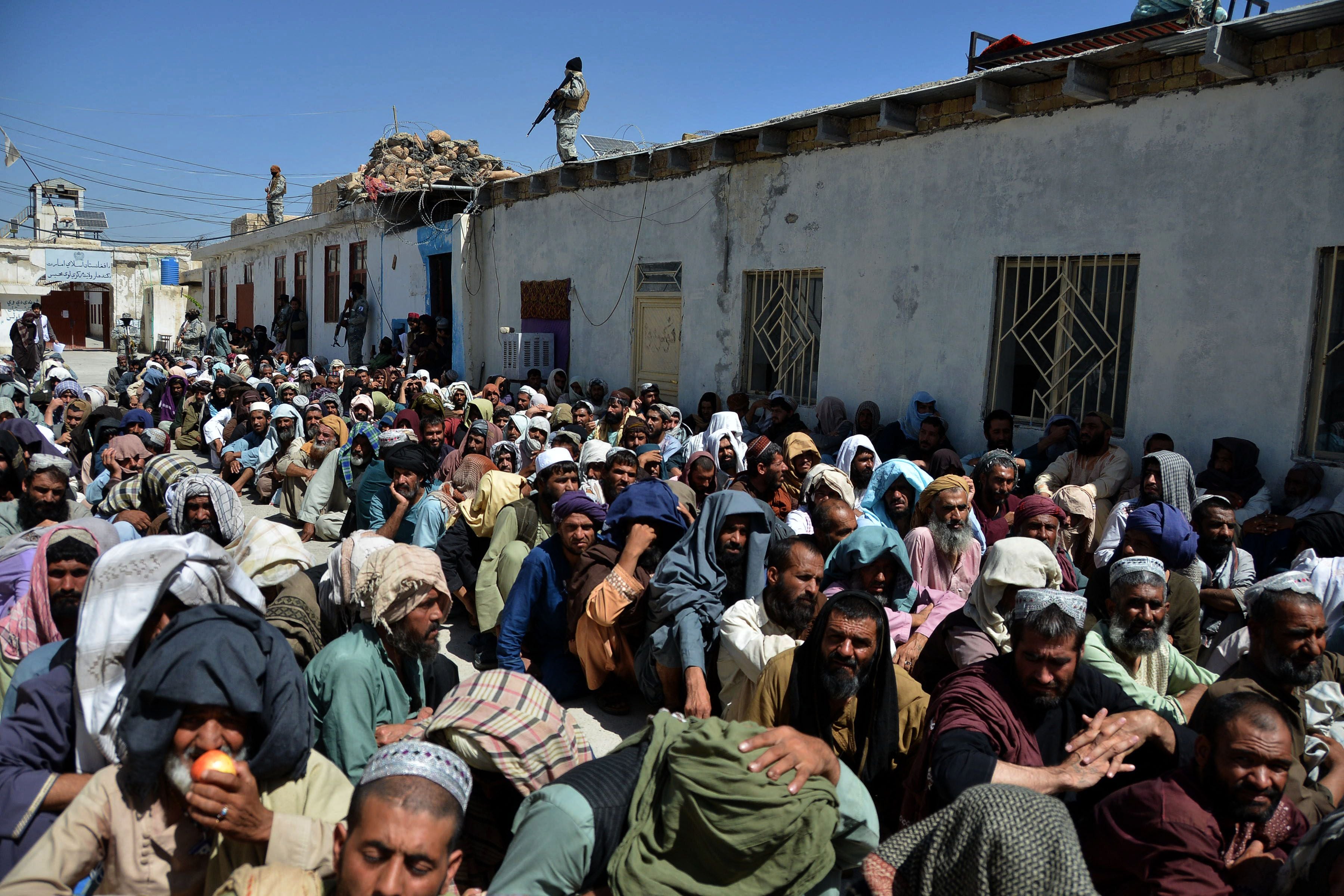
The Taliban appears to be cracking down particularly hard against anyone suspected of being from the province of Panjshir, which put up some of the fiercest resistance to the group’s takeover in 2021. But even Afghans who do not hail from this province can be caught up in the Taliban’s zeal to quash any last pockets of resistance.
Naseer Mohammad* was arrested on 23 October last year by a Taliban patrol near Hesarak district to the east of Kabul, with the fighters incorrectly accusing him of being from Panjshir, his brother Najib* recalls.
Najib went through the same ordeal as many other families in recent months – asking around Taliban offices after his brother, only to be dismissed or physically beaten before being thrown off the premises.
Naseer’s body finally turned up in an abandoned house, where it had been left with both hands and feet bound from behind. There was no shirt on Naseer’s body, and when Najib tried to put his brother’s right arm back into position, he couldn’t. The socket joining his arm to his shoulder was broken, Najib tells The Independent during a phone call.
No one from the family has spoken out about Naseer’s death before now, in fear of the Taliban punishing them in the same way, and Najib is understandably cagey. “This is the first time I am speaking about my brother’s death,” he says. “There are many things I will not bring to public light.”
Many Taliban detainees do not survive to tell the tale of what conditions are like inside the group’s prisons, but The Independent spoke to Zayed*, who says he was returned to his family after seven months of gruelling detention and torture. The Taliban had determined he had no links to the resistance movement.
He says he was kept in a 1.5-metre-long cell with seven other men, and was fed only half a piece of bread and a cup of water each day for almost 200 days.
The corridor leading to the washroom was lined with about 20 similar cells, he says. Every day, someone was pulled out of Zayed’s cell and taken to a separate room for torture, returning after five or six hours with a broken hand or leg, or some other disfigurement.
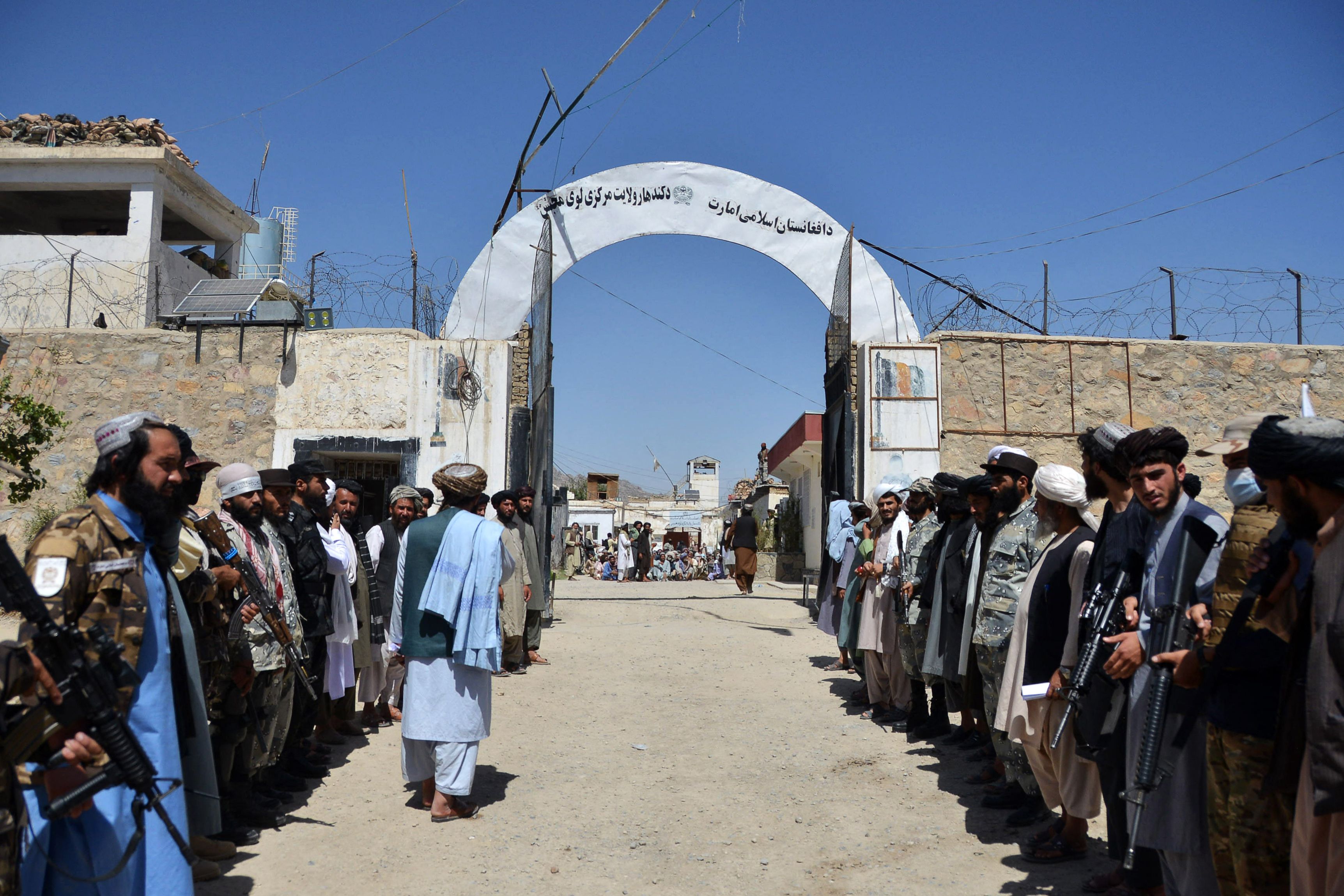
Zayed says that when it was his own turn, he was continuously lashed and beaten until he passed out. “They would then sprinkle water on my face, let me regain consciousness before beating me up again, and ask me to admit if I had any links to the resistance movement brewing in Panjshir,” he tells The Independent.
Other forms of torture included electrical shocks being applied to the prisoners’ legs, he says, adding: “I was hung upside down from a ceiling and beaten up every day till I lost sense.”
Zayed says he “feared [he] would die” from the torture. When he would cry out and beg them to stop, he said he was told simply: “You’re a Panjshiri.”
“The howling and crying from the cells next to ours would never stop. We would learn every now and then that some man died due to torture and his body was gotten rid of,” says Zayed.
In August, the Taliban finally concluded that he was not a resistance fighter and called his family, telling them he was alive but that they would need to pay a large bribe to secure his release. The family took out a loan to cover the bribe, which they are still paying off, and Zayed was dumped on his family’s doorstep. He stayed at home for a time but is now back on the run, after hearing word last month that the Taliban was looking to “question” him again.
For the families of those being jailed and killed by the Taliban, the suffering continues long after the victim has died or been released. Zoya says the inescapable image of Farhan’s battered body has tainted the loving memories his relatives have of a hard-working and selfless elder son.
She describes how he had ambitions of lifting up the family – and his country – even in the darkest times. “He would tell us: ‘I will become the president of Afghanistan and save the country from the hands of this tragedy,’” says Zoya.
Now the family go about their days in fear, terrified of even speaking about Farhan in case word gets back to the Taliban. “No one in my family smiles. We cannot even think of being normal even for a day. He was our main reason to get out of Kabul, but the way the Taliban killed him has sealed our fate for ever.”
Amnesty International has been monitoring the rapid dismantling of human rights in Afghanistan since the Taliban takeover, and says that the regression to the state the country was in during the militant group’s last tenure, from 1996 to 2001, has been staggering and overwhelming.
“This is the same old Taliban, hellbent on destroying people’s lives with their same old views and methods. Arbitrary detentions, torture, disappearances, summary executions have returned as the order of the day,” Samira Hamidi, Amnesty International’s south asia campaigner, tells The Independent.
“We are calling on the international community to take action and hold the Taliban accountable for their crimes, and to further prevent Afghanistan’s human rights crisis from spiralling.”
*Names have been changed to protect identities
Update Sunday 19 February: An earlier version of this article incorrectly described journalist Natiq Malikzada as being based in Kabul.
Join our commenting forum
Join thought-provoking conversations, follow other Independent readers and see their replies
Comments



Bookmark popover
Removed from bookmarks